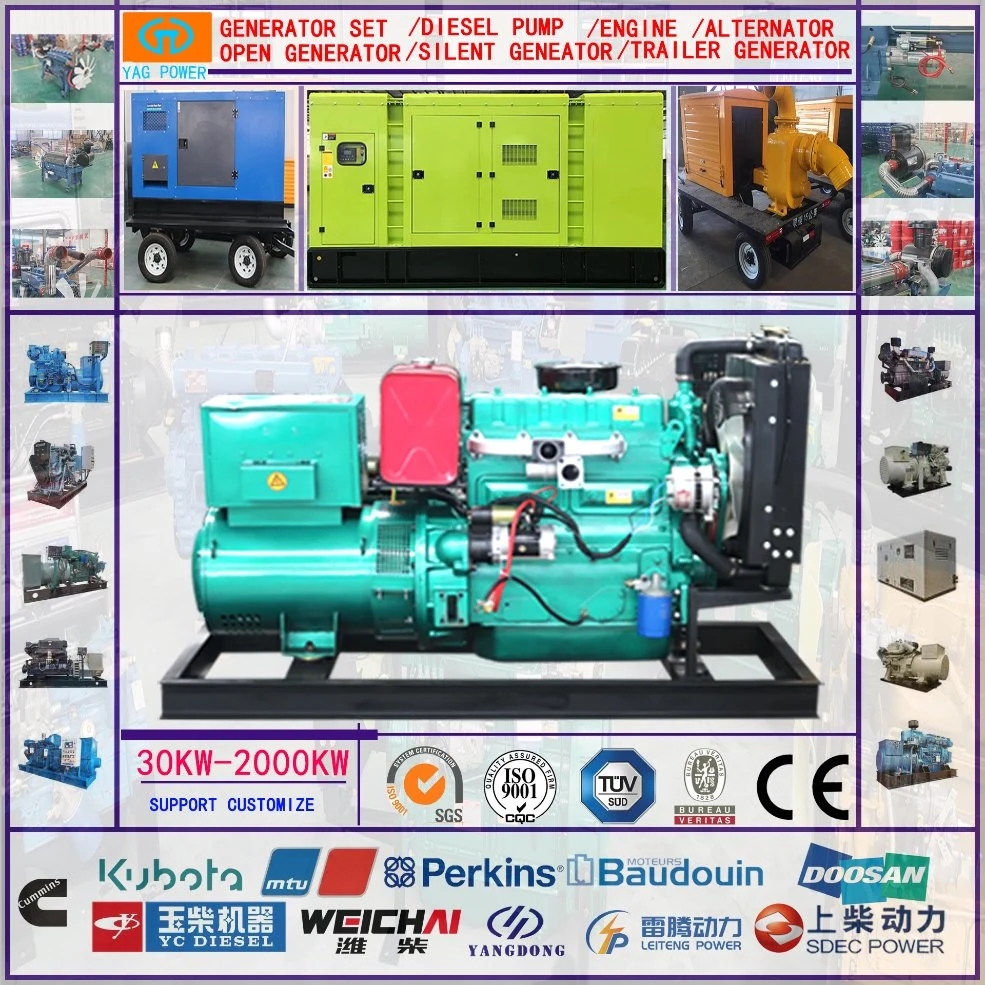Introduction
Durability testing is a critical aspect of product development across various industries, ensuring that the products can withstand the rigors of real-world conditions. Diesel generators play a vital role in this process, providing a reliable and consistent source of power for conducting tests that simulate extreme environments and long-term usage. In this article, we will explore the significance of diesel generators in durability testing, their key features and advantages, as well as best practices for using them effectively.
Understanding Durability Testing
Durability testing is a systematic process that evaluates the ability of a product to withstand specific environmental conditions, stresses, and usage scenarios over an extended period. This type of testing is essential for various industries, including automotive, aerospace, electronics, and consumer goods, to ensure that their products meet the expected quality standards and performance criteria.
Durability testing typically involves subjecting the product to a series of stress tests, such as thermal cycling, vibration, humidity exposure, mechanical loading, and accelerated aging. These tests help identify potential weaknesses, design flaws, or material limitations that could affect the product's reliability and longevity in the field.
The Role of Diesel Generators in Durability Testing
Diesel generators are a popular choice for providing power during durability testing due to their robustness, reliability, and fuel efficiency. These generators are designed to deliver a continuous and stable power supply, making them ideal for powering test equipment, instrumentation, and environmental chambers used in durability testing setups.
One of the key advantages of using diesel generators in durability testing is their ability to provide power independently of the grid, ensuring uninterrupted testing even in remote or off-grid locations. This autonomy is crucial for maintaining the integrity of test results and avoiding costly downtime that could impact the testing schedule.
500kw diesel generator for remote industrial applications of Diesel Generators for Durability Testing
There are several key features that make diesel generators well-suited for durability testing applications:
1. Robustness: Diesel generators are built to withstand harsh operating conditions, making them reliable in challenging environments where durability testing is conducted.
2. Fuel Efficiency: Diesel engines are known for their fuel efficiency, providing cost-effective power generation over extended testing periods.
3. Power Stability: Diesel generators offer stable power output, ensuring consistent performance of test equipment and minimizing fluctuations that could affect test results.
4. Low Maintenance: Diesel generators require minimal maintenance compared to other types of power sources, reducing downtime and operational costs during durability testing.
5. Scalability: Diesel generators come in a wide range of sizes and power capacities, making it easy to scale up or down based on the specific testing requirements.

Advantages of Using Diesel Generators in Durability Testing
The use of diesel generators in durability testing offers several advantages that contribute to the overall success of the testing process:
1. Reliability: Diesel generators are known for their reliability and durability, ensuring continuous power supply throughout the testing duration.
2. Flexibility: Diesel generators can be easily transported and deployed in various testing locations, providing flexibility in conducting durability tests in different environments.
3. Cost-Effectiveness: Diesel fuel is widely available and relatively inexpensive, making diesel generators a cost-effective power solution for durability testing setups.
4. Environmental Compatibility: Modern diesel generators are designed to comply with stringent emission regulations, ensuring minimal impact on the environment during testing operations.
Best Practices for Using Diesel Generators in Durability Testing
To maximize the effectiveness of diesel generators in durability testing, it is essential to follow best practices that ensure optimal performance and reliability:
1. Regular Maintenance: Schedule routine maintenance checks and inspections to keep the diesel generator in peak operating condition and prevent unexpected failures during testing.
2. Fuel Quality: Use high-quality diesel fuel to maintain the efficiency and longevity of the generator engine, avoiding fuel-related issues that could disrupt testing activities.
3. Load Management: Monitor and manage the load on the diesel generator to prevent overloading and ensure stable power output for all testing equipment.
4. Environmental Considerations: Place the diesel generator in a well-ventilated area to prevent overheating and ensure proper air circulation for engine cooling.
5. Backup Power Source: Have a backup power source or contingency plan in place to address any unexpected power interruptions or equipment failures during durability testing.
Conclusion
Diesel generators play a crucial role in durability testing, providing a reliable and consistent power supply for conducting stress tests and simulations that evaluate the performance and longevity of products. Their robustness, reliability, and fuel efficiency make them an ideal choice for powering test equipment and instrumentation in various industries. By following best practices and leveraging the advantages of diesel generators, organizations can ensure successful and accurate durability testing to deliver high-quality products to the market.
